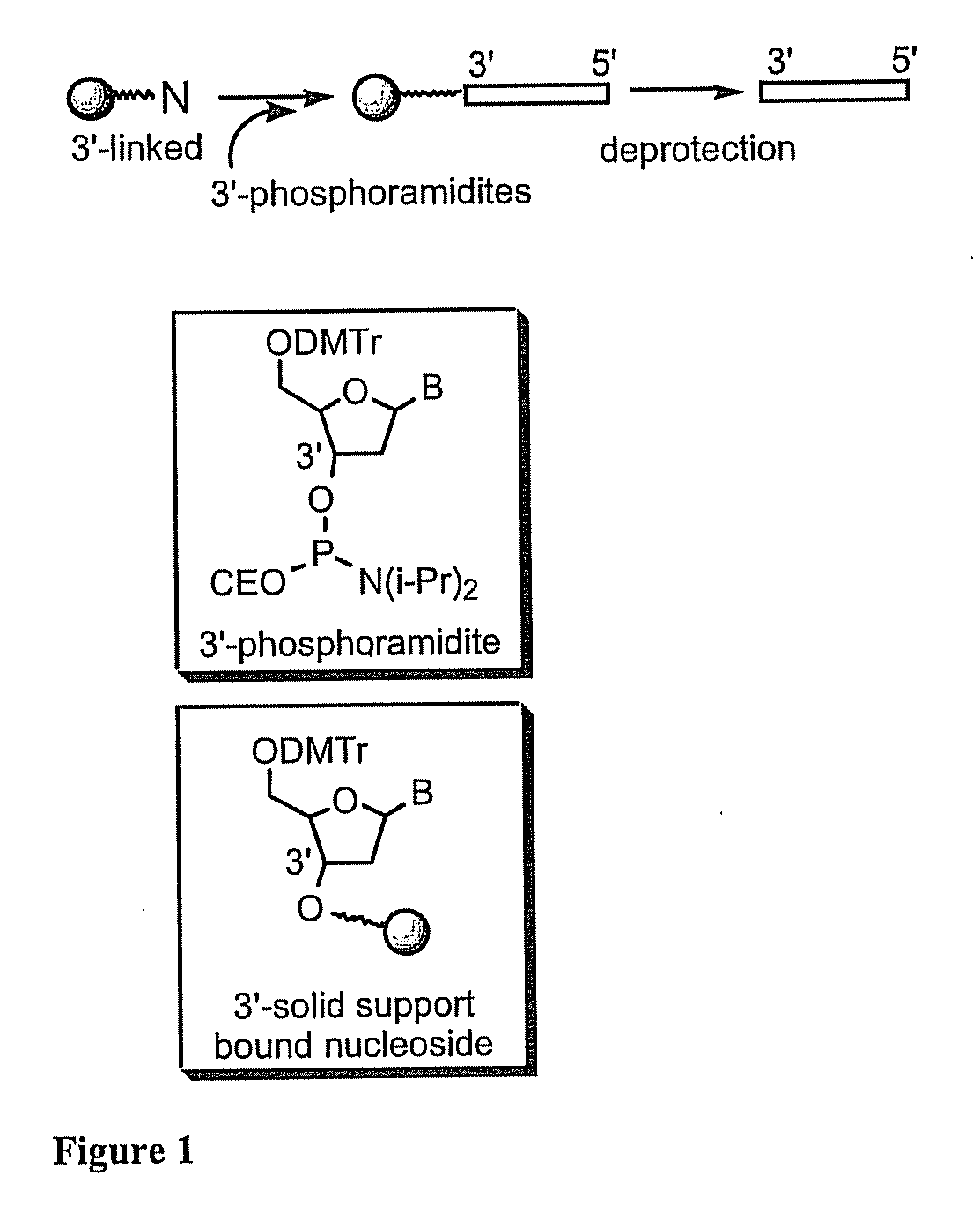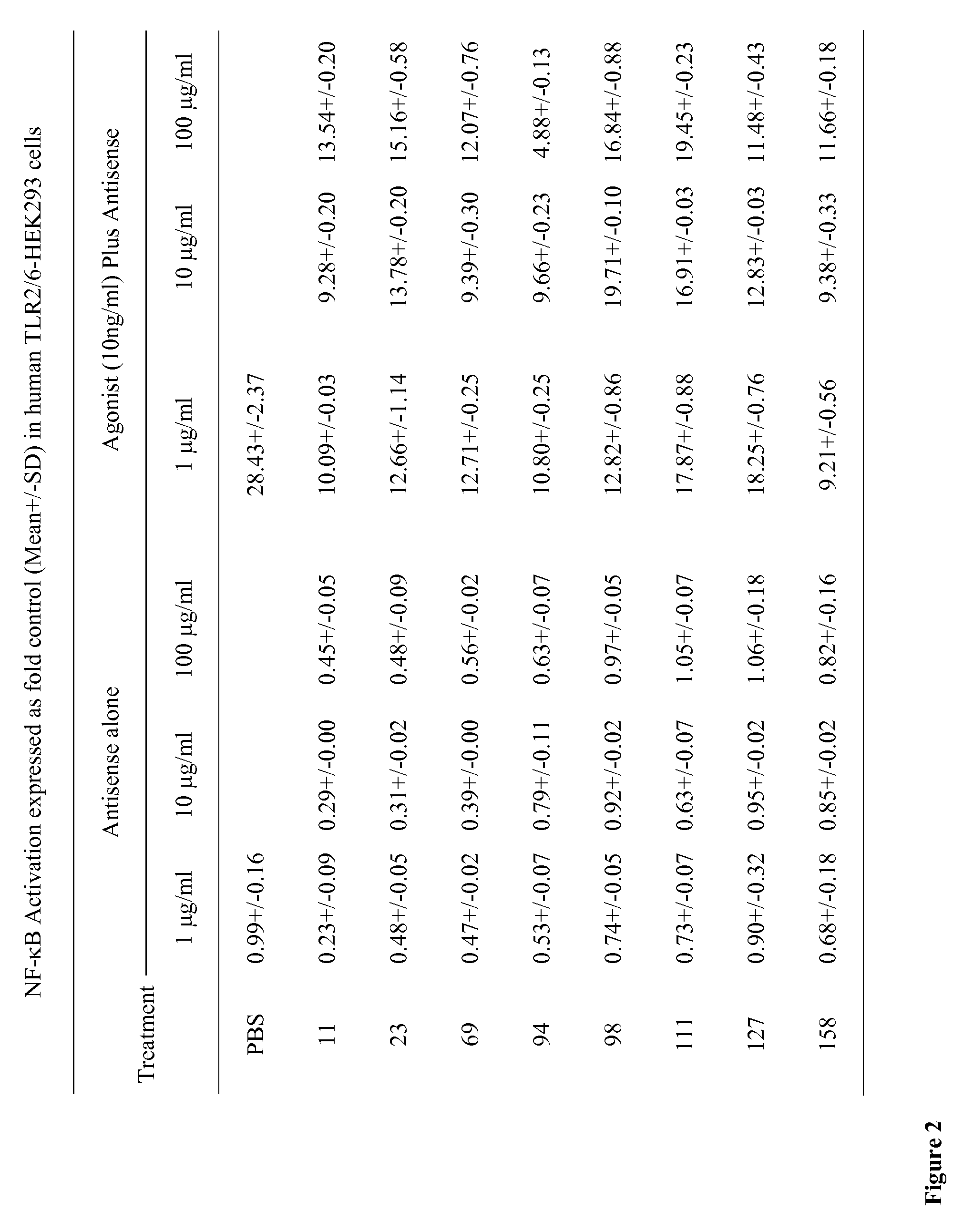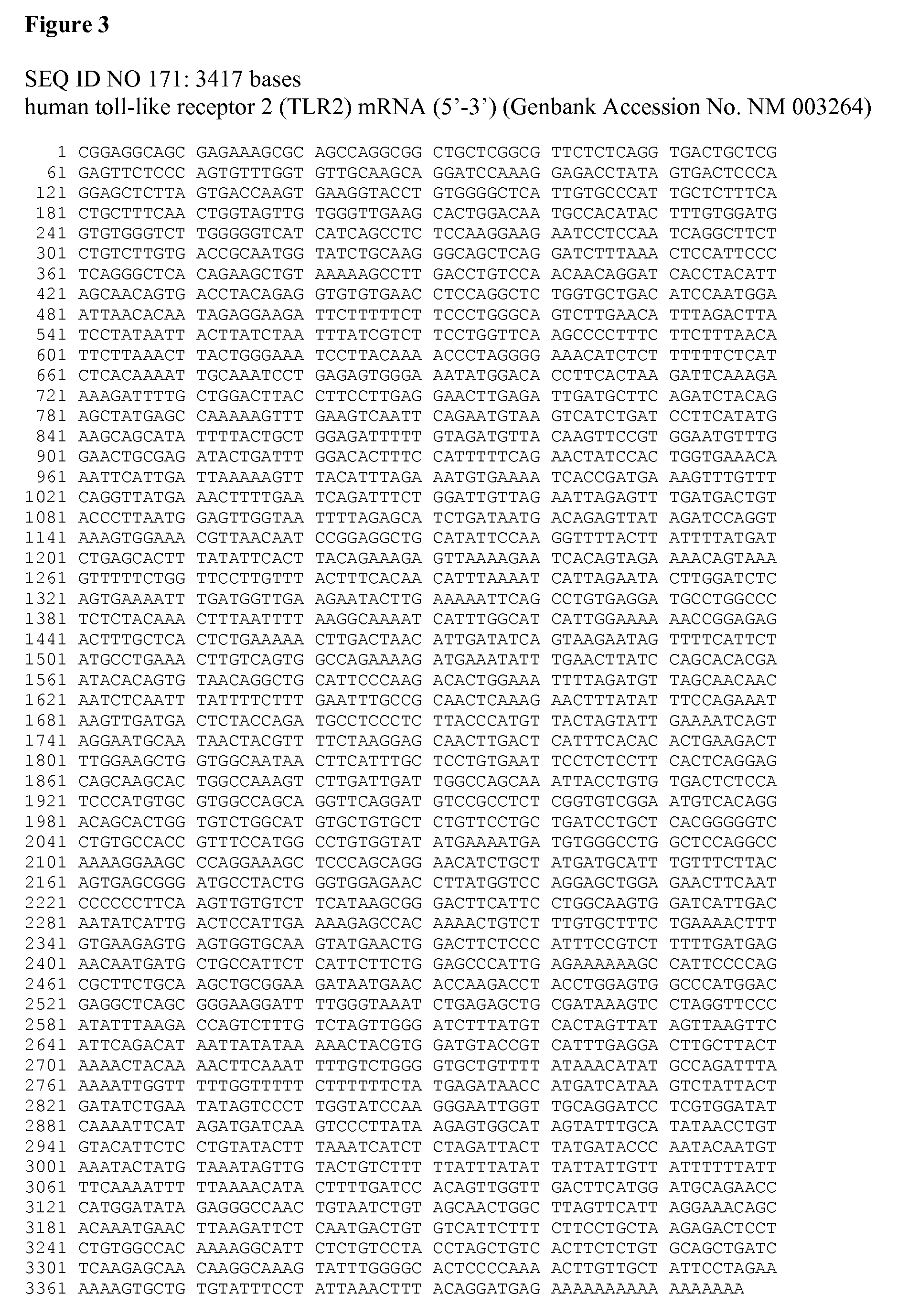Modulation of Toll-Like Receptor 2 Expression By Antisense Oligonucleotides
a technology of toll-like receptor and antisense oligonucleotides, which is applied in the field of toll-like receptor 2 (tlr), can solve the problems of unachievable patient utility of these inhibitory oligodeoxynucleotide molecules, and the optimization of antisense oligonucleotides that have true potential as clinical candidates is not predictable, so as to efficiently inhibit the expression of tlr2
- Summary
- Abstract
- Description
- Claims
- Application Information
AI Technical Summary
Benefits of technology
Problems solved by technology
Method used
Image
Examples
example 1
Preparation of TLR2-Specific Antisense Oligonucleotides
[0100]Chemical entities according to the invention were synthesized on a 1 μmol to 0.1 mM scale using an automated DNA synthesizer (OligoPilot II, AKTA, (Amersham) and / or Expedite 8909 (Applied Biosystem)), following the linear synthesis procedure outlined in FIG. 1.
[0101]5′-DMT dA, dG, dC and T phosphoramidites were purchased from Proligo (Boulder, Colo.). 5′-DMT 7-deaza-dG and araG phosphoramidites were obtained from Chemgenes (Wilmington, Mass.). DiDMT-glycerol linker solid support was obtained from Chemgenes. 1-(2′-deoxy-β-D-ribofuranosyl)-2-oxo-7-deaza-8-methyl-purine amidite was obtained from Glen Research (Sterling, Va.), 2′-O-methylribonuncleoside amidites were obtained from Promega (Obispo, Calif.). All compounds according to the invention were phosphorothioate backbone modified.
[0102]All nucleoside phosphoramidites were characterized by 31P and 1H NMR spectra. Modified nucleosides were incorporated at specific sites us...
example 2
Cell Culture Conditions and Reagents
HEK293 Cell Culture Assays for TLR2 Antisense Activity
[0103]HEK293 cells stably expressing human TLR2 / TLR6 (Invivogen, San Diego, Calif.) were plated in 48-well plates in 250 μL / well DMEM supplemented with 10% heat-inactivated FBS in a 5% CO2 incubator. At 80% confluence, cultures were transiently transfected with 400 ng / mL of the secreted form of human embryonic alkaline phosphatase (SEAP) reporter plasmid (pNifty2-Seap) (Invivogen) in the presence of 4 μL / mL of lipofectamine (Invitrogen, Carlsbad, Calif.) in culture medium. The SEAP reporter plasmid is inducible by NF-κB. Plasmid DNA and lipofectamine were diluted separately in serum-free medium and incubated at room temperature for 5 min. After incubation, the diluted DNA and lipofectamine were mixed and the mixtures were incubated further at room temperature for 20 min. Aliquots of 25 μL of the DNA / lipofectamine mixture containing 100 ng of plasmid DNA and 1 μL of lipofectamine were added to e...
example 3
In Vivo Activity of TLR2 Antisense Oligonucleotide
[0105]Female C57BL / 6 mice of 5-6 weeks age (N=3 / group) are injected with exemplary murine TLR2 antisense oligonucleotides according to the invention at 5 mg / kg, or PBS, subcutaneously once a day for three days. Subsequent to administration of the TLR2 antisense oligonucleotide, mice are injected with 0.25 mg / kg of a TLR2 agonist subcutaneously. Two hours after administration of the TLR2 agonist, blood is collected and TLR2 mRNA, TLR2 protein, and IL-12 concentrations are determined by ELISA.
PUM
| Property | Measurement | Unit |
|---|---|---|
| weight | aaaaa | aaaaa |
| length | aaaaa | aaaaa |
| time | aaaaa | aaaaa |
Abstract
Description
Claims
Application Information
 Login to View More
Login to View More - R&D
- Intellectual Property
- Life Sciences
- Materials
- Tech Scout
- Unparalleled Data Quality
- Higher Quality Content
- 60% Fewer Hallucinations
Browse by: Latest US Patents, China's latest patents, Technical Efficacy Thesaurus, Application Domain, Technology Topic, Popular Technical Reports.
© 2025 PatSnap. All rights reserved.Legal|Privacy policy|Modern Slavery Act Transparency Statement|Sitemap|About US| Contact US: help@patsnap.com



